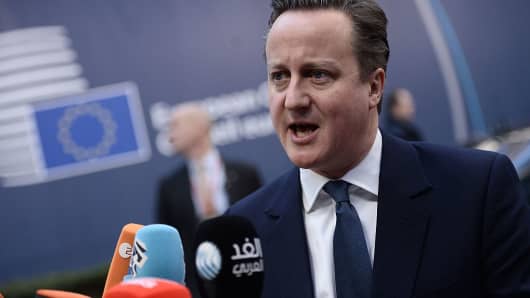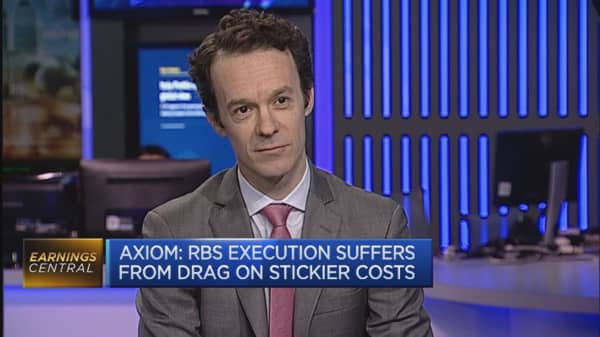After falling to a seven-year low Wednesday, the British pound is set to end the week down more than 3 percent from when U.K. Prime Minister David Cameron set June 23 for the so-called Brexit referendum. Given the currency was already down more than 5 percent year to date, and down more than 10 percent over the past 12 months, this week's reaction was quite significant to the simple confirmation of a date for an already well-telegraphed vote on whether Britain should stay in the European Union.
The debate in Britain over EU membership centers on three main areas.
- First, the economy, and whether positives like free trade would exist outside of EU membership, and whether negatives like excess regulation would make a meaningful difference if removed.
- Second, migration of workers, and whether this helps offset Britain's poor demographics, or acts as an excess strain on the welfare system.
- And third, sovereignty; is Britain ruled by the members of Parliament in Westminster elected last May by British voters, or by unelected bureaucrats in Brussels?
The big move in sterling over the past week came not at the start of last weekend when Cameron returned from Brussels with his renegotiation deal, but rather on Sunday and Monday. There are two main reasons for this.
- First, Boris Johnson became the most high-profile member of Cameron's own Conservative Party to say he would be backing an exit. The Financial Times reported this week that the number of Tory MPs backing Brexit is approaching 150, meaning that the parliamentary party of 331 MPs is split almost in half. This, alongside some Labour MPs too, adds a broad, mainstream appeal to the exit camp that has found it hard to present a united front so far. It's little known in the U.S. that in the U.K. there have been three rival exit groups vying to be the official organization in the Electoral Commission's eyes to front the exit campaign. They disagree on the priorities and on who should lead the charge. It has at times created a slightly farcical nature to the idea of a British exit from the EU, and thus not galvanized the support of as yet undecided voters.
- The other thing that occurred at the same time is that Johnson framed the debate very much as a sovereignty issue. Those who oppose the migration of Continental Europeans into Britain are likely to vote for a Brexit regardless. Similarly those who voted for Nigel Farage and the UK Independence Party in last year's general election have probably already decided how they will vote on June 23. By pulling on the sovereignty chord, Johnson and company have a much better chance of convincing swing voters — the portion of which is large, adding unpredictability to this vote — to side with him and back an exit.






